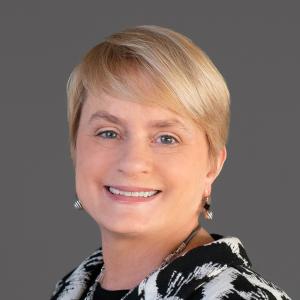Earlier this year, the Department of Labor (DOL) published a Final Rule that dramatically expands the pool of salaried workers entitled to overtime pay under the Fair Labor Standards Act (FLSA) by raising the minimum salaries required to qualify for exempt status in bona fide executive, administrative, or professional (EAP) roles, or as exempt "highly compensated employees." The first of several graduated increases to the salary thresholds went into effect on July 1, 2024, with additional increases scheduled for January 1, 2025. On Nov. 15, 2024, however, a federal judge in Texas vacated the entire rule, including the July and January increases, finding that the DOL exceeded its rulemaking authority.
The decision by Trump-appointed Judge Sean D. Jordan of the United States District Court for the Eastern District of Texas, combined with the return to office of the man who appointed him, means the Final Rule is unlikely to be resuscitated. The chances of the Department of Justice under the incoming administration appealing and seeking to revive what was generally viewed as an employee-friendly rule are close to nil.
What the Final Rule Would Have Done
The DOL estimated that employers would need to pay approximately 4.3 million more U.S. workers time-and-half for all hours worked above 40 per week once the new salary thresholds took effect.
To qualify for "white collar" or EAP exemptions from overtime pay, most EAP employees must be paid at a rate that is no less than a specific salary on an annual basis and satisfy at least one of the EAP job duties tests. The Final Rule did not change the job duties tests for determining EAP status. Instead, it simply raised the salary thresholds.
The Final Rule also raised the salary thresholds for the FLSA's "highly compensated employee" exemption. The highly compensated employee exemption applies to those workers who earn more than the designated amounts, whose primary duty includes performing office or non-manual work, and who customarily and regularly perform at least one of the exempt duties or responsibilities of an exempt executive, administrative, or professional employee as detailed in the EAP job duties tests.
What Judge Jordan's Ruling Said
Judge Jordan found that the DOL exceeded its rulemaking authority to "define" and "delimit" EAP exemptions by improperly elevating salary thresholds over the job duties test in determining who qualified for the exemptions. He wrote that:
"…the [DOL] cannot use a proxy characteristic (salary) to measure eligibility for the EAP Exemption[s] when it will "frequently yield different results than the characteristic Congress initially chose," i.e., duties. The [DOL's] attempt to do so in the 2024 Rule demonstrates that its use of the salary proxy is not so much defining and delimiting the original statutory terms as replacing them."
A significant aspect of the ruling was its reliance on the U.S. Supreme Court's 2024 decision in Loper Bright Enterprises v. Raimondo, which overturned long-established "Chevron deference," under which courts normally deferred to an administrative agency's expertise when interpreting a statute. The Jordan ruling demonstrates the uncertain future of the authority of federal employment-related regulations due to the end of "Chevron deference."
What the Ruling Means for Employers
Since Judge Jordan vacated the entire Final Rule, including the July 2024 and January 2025 increases, employers that raised salaries for some employees to keep them above either or both of those overtime thresholds could legally claw those raises back, though the employee relations consequences of doing so may be significant. Employers who have not yet implemented increases to meet the January 2025 threshold are not required to do so.
While the 2024 Final Rule is effectively dead, it remains possible that the incoming administration may nevertheless raise salary thresholds more modestly under a new rule since it did so in its previous iteration in 2019.
If you have questions about Judge Jordan's ruling, the Final Rule, or overtime exemptions generally, please contact Melissa Jones at Tydings.
